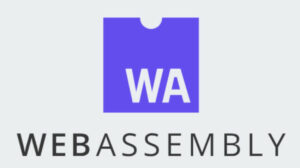10 Best IDE Software for Beginners & Professionals in 2024

These days, many programming tutorials allow students to code in an online code environment designed by the training platform. Platforms like Codecademy and freeCodeCamp allow you to code right in your browser. However, professional programmers don’t code in a browser, instead, they set up their developer environment, they code using an IDE.
An IDE (Integrated Development Environment) is software designed to facilitate designing and developing applications. IDEs increase the productivity of programmers with tools like compilers, debuggers, plugins, etc. An IDE isn’t just for switching to dark mode while coding, but it houses features like auto code complete, code formatting to make your code organized, color palettes, etc.
However, you should know that an IDE is very different from a text editor like Notepad; though they’re both capable of writing code, a text editor is not designed for professional software development.
Best IDE Software for Beginners & Professionals
This article highlights the top 10 best IDEs for beginners and professionals. Whether you’re a veteran or a newbie developer, the following IDEs are the best for developing applications:
1. Visual Studio
Visual Studio is one of the most powerful IDEs available today. It’s very versatile, boasting features like Visual Studio Live Share, Code Map Debugger Integration, Intellicode, Azure DevOps Server Integration. In addition to its outstanding features, Visual Studio plays host to a vast library of plugins that simplify the process of writing code.
Microsoft developed visual Studio, and it can be used to develop websites, mobile applications, indie games, and a lot more. Visual Studio supports both Windows and Mac OS. Visual Studio is quite pricey, but it offers a free community license which is open source.
Visual Studio is not limited by language either. It offers 14 different UI languages compared to most IDEs that only offer an English UI. However, visual Studio is a complex software and might not be the best option for a beginner developer.
2. PhpStorm
Jetbrains is one of the most popular IDE companies available today. They develop the most intuitive and user-friendly IDEs; PhpStorm is no exception. PhpStorm is one of the best IDEs recommended for web development. It combines Webstorm, PHP, and DB or SQL. PhpStorm is a one-stop shop for web developers.
PhpStorm offers smart code assistance for various languages and smart navigation features upgraded with a “search everywhere” program that allows for simple math calculations. It also comes with a debugger, language refactoring, unit testing tools, and 2500+ plugins.
One major downside of PhpStorm is that it doesn’t have a free version at all compared to its competitors. However, Jetbrains occasionally offer discounts to users. PhpStorm requires high system specs to run smoothly, and the individual pricing is costly for individual programmers.
3. Eclipse
The Eclipse foundation developed the Eclipse IDE. It is one of the most trusted free IDEs. Eclipse was developed primarily for Java developers. However, Eclipse can be customized with different packages and development tools that support languages like Javascript, C++, Rust, PHP, and more.
Like visual Studio, Eclipse has a vast library of plugins, making it suitable for large-scale development. Eclipse has an active developer community that regularly supports fellow programmers when needed.
Unlike most IDEs, Eclipse is constantly updated and is very lightweight; it has no specified system requirement to run the software. The UI of Eclipse is very intuitive, with features like drag and drop. The UI is also easily customizable to suit your preference.
4. Pycharm
Pycharm is an IDE developed by Jetbrains. It was developed primarily for writing and developing applications using python. Python is suitable for web development, mobile app development, and Data Science.
Pycharm offers both a free community edition and a premium licensing option. Pycharm features smart code completion, refactoring, testing, compiling, on-the-go error highlighting. It also supports version control Github, CVS, and a lot more.
Pycharm supports seven frameworks like Django, Flask, Google App Engine, etc. Python can also be used for scientific development purposes like AI and machine learning with Numpy and Matplotlib. Pycharm supports the three primary OS; Windows, Mac, and Linux.
5. Intellij IDEA
Intellij IDEA is another IDE developed by the folks over at Jetbrains. This IDE is written in JAVA and is widely used for Java development. It is one of the most beginner-friendly IDEs available for coding. It offers smart code completion, refactoring, language injection, Javascript support, as well as database and SQL support.
Intellij IDEA supports Java 8 and Java EE 7, which is very handy for developing mobile apps and scalable applications for large enterprises. It supports a wide array of developer tools, and it doesn’t require external plugins to function.
Intellij IDEA is very suitable for beginners due to its intuitive user interface. It also comes with additional features like local history, which replaces the need for manual saving. One major disadvantage with Intellij IDEA is that it requires high system configurations to run optimally. This makes it difficult to run on mid-range PCs.
6. Apache Netbeans
Netbeans is one of the best free IDEs available to programmers. It was developed by Apache Software Foundation and Oracle. Net Beans functions as an IDE, tooling platform, and application network. Netbeans hosts a wide array of plugins and refactoring tools for a free IDE.
Applications developed using this IDE are developed in components called modules. Netbeans IDE is excellent for writing Java code. This is because Netbeans was developed by the owners of Java – Oracle. The support for Java developers here is stellar, and Netbeans is the official IDE for Java 8. Netbeans is suitable for developing desktop, mobile, and web applications.
Netbeans is very efficient in running server-side applications, but one major disadvantage is that it takes a lot of time to load up.
7. Code::Blocks
Code::blocks is a free IDE designed to support C, C++, and Fortran development primarily. It is written in C++, and the source code is open source. The fact that code::blocks was written in C++ eliminates the problems arising from IDEs developed with Java. The main goal of Code::Blocks is to be as customizable and extensible as possible.
Code::Blocks provides users explicit freedom even before installing the software. Most IDEs recommend installing the Binary release. However, code blocks allow users to download the source code to build custom applications.
Code::Blocks has no official system requirement and can even run on the ancient Windows XP OS.
8. Xcode
Xcode is the primary IDE for developing Mac, iPhone, iPad, and Apple Watch applications. Xcode offers support for up to Swift 5.3, debugging tools, multiple compilers, editing tools, as well as support for plugins and an SDK with a mac-based simulator.
The latest release of Xcode now offers SDK support for iOS 14, iPad OS, tv OS 14, watchOS 7, and macOS big sur. Xcode features Swift UI designed for big sur. Xcode is the primary IDE for developing Apple applications. For people looking to switch over to iOS development, Xcode 12 is an excellent option.
9. Aptana Studio
Aptana Studio is an IDE designed primarily for web development. It is very easy to use, free, and has an active developer community. Aptana features most of the tools needed for web development, such as code assistance for HTML5, CSS3, Javascript, Python, and Ruby on Rails framework.
Aptana is one of the most powerful free IDEs supporting cross-browser compatibility modern browser specifications and allows users to test and deploy web apps quickly. Although Aptana is suitable for students carrying out web development projects, it is not suitable for developing enterprise-scale applications.
10. Komodo
Komodo was developed by the ActiveState Platform and is one of the best lightweight IDEs available. It supports multiple languages, and the licensing is entirely free for personal use. It comes with virtually all the standard IDE features: smart code editing capabilities, refactoring, XML navigation, and XML-auto complete.
Komodo supports syntax highlighting for almost any language, and its smart code feature supports languages like Python, Perl, Go, Node.js, Javascript, HTML, CSS, and a lot more. For a free IDE, Komodo provides users with a plethora of features and is an ideal IDE for a developer looking for a lightweight multi-lingual IDE.
Conclusion
Choosing the best IDE for coding isn’t a straightforward task. You have to put various factors like intuitiveness, cost, browser support, etc. Luckily, we provided you with a comprehensive list of the ten best IDE for software developers. We hope this article helps you in your quest to find the perfect IDE.
Happy Coding!






My best IDE is Codelobster – http://www.codelobster.com